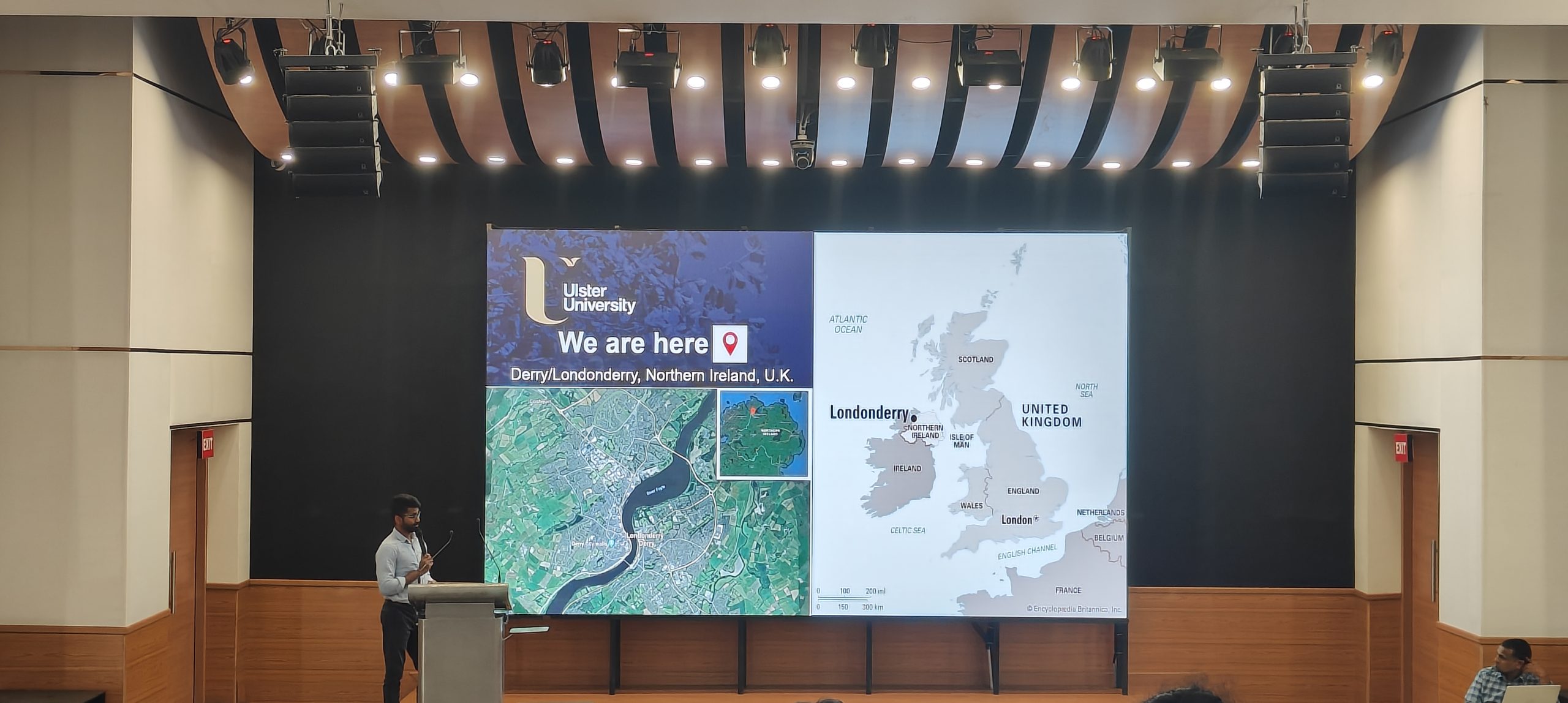 The Department of Electronics and Communication Engineering (ECE) at SRM University-AP, Amaravati recently hosted a thought-provoking guest lecture on “Approximate Computing and Hardware Security: Opportunities and Risks”, featuring Dr Aditya Japa, a renowned researcher and faculty member at the School of Computing, Engineering and Intelligent Systems, Ulster University, UK.
The Department of Electronics and Communication Engineering (ECE) at SRM University-AP, Amaravati recently hosted a thought-provoking guest lecture on “Approximate Computing and Hardware Security: Opportunities and Risks”, featuring Dr Aditya Japa, a renowned researcher and faculty member at the School of Computing, Engineering and Intelligent Systems, Ulster University, UK.
The session organised by Dr Ramesh Vaddi, Associate Professor, Department of ECE brought together over 110 participants, including faculty, PhD scholars, and UG/PG students, eager to gain insights into the evolving paradigms of energy-efficient and secure hardware design.
Dr Japa holds a Ph.D. in Electronics and Communication Engineering from Dr SPM IIIT Naya Raipur, India, with specialisation in emerging technologies for hardware security. His illustrious academic journey includes significant research contributions at Queen’s University, Belfast, and a published book titled “Introduction to Microelectronics to Nanoelectronics: Design and Technology.” His current work at Ulster University revolves around hardware and system security, particularly in Physical Unclonable Functions (PUFs), True Random Number Generators (TRNGs), and security strategies for approximate computing.
Key Highlights of the Lecture
Approximate computing is fast emerging as a compelling approach for building high-performance and energy-efficient systems, especially for error-tolerant applications like multimedia processing, AI, and big data analytics. However, this paradigm also introduces unique security challenges and opportunities, as explored in-depth by Dr Japa.
Key points covered included:
- Threat Models in approximate circuits and memory architectures such as DRAM and SRAM, revealing vulnerabilities to side-channel attacks, reverse engineering, and hardware Trojans.
- How approximate hardware, despite risks, can serve as a platform for resource-efficient security primitives.
- Security through approximation: Leveraging simplified circuits for information hiding and obfuscation, maintaining security with significantly reduced computational cost.
- Future research directions including secure-by-design architectures, cross-domain applications, and standardised benchmarking tools.
The session aimed to expose students and researchers to state-of-the-art advancements in hardware security and to encourage critical thinking around the duality of risk and opportunity in approximate computing. Participants walked away with a deeper understanding of:
- Designing systems that are both efficient and resilient.
- Emerging countermeasures against approximation-induced vulnerabilities.
- The strategic role of interdisciplinary research in addressing these challenges.
Recommendations for Further Action
- The event also sparked actionable recommendations for academia and industry:
- Develop approximation-aware threat models for various application domains.
- Design architectures that are secure by approximation.
- Invest in benchmarking and validation tools for secure approximate systems.
- Encourage cross-domain research in computing, security, and AI.
- Promote education and policy development in secure hardware design.
Events like these reflect SRM University-AP’s unwavering commitment to academic excellence, industry-relevant training, and research-led learning. The ECE department continues to serve as a platform for knowledge exchange and global collaboration, preparing students for the next generation of technological innovation.

